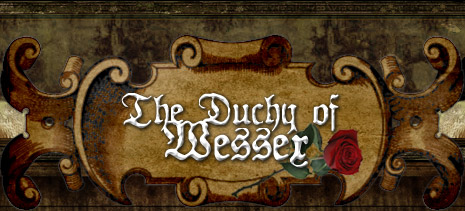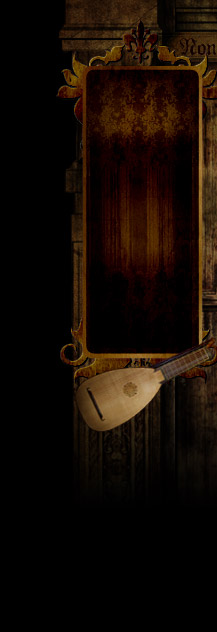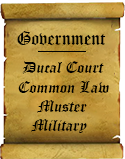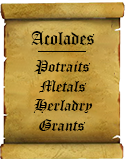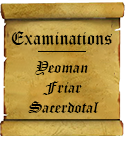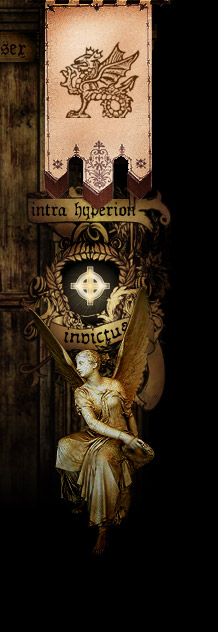
The Common Law
All subjects of the Duchy of Wessex are answerable to the writs, laws and pronouncements of His Grace the Duke of Wessex and the Seal of the Ducal Court, as well as all legislation imposed directly or indirectly by the Carta Solis or the Royal Seal of Hyperion.
• Judicial Process in the Realm:
Those wishing to report a crime or grievance shall seek out an appointed Royal Sheriff. Royal Sheriffs are duly empowered by the Crown to settle disputes and preside over an assize composed of peers of the plaintiff and of the defendant.
• Offenses Punishable by Fine and Public Humiliation
- Let no one burgle, vandalize or rob the property or chattel of his fellow subject.
- Let no one molest or harass his fellow subject. (as defined by House Bill 3B)
- Let no one rouse the ire of foreign nations against our realm by recklessness and idiocy.
- Let minor breaches of feudal oath likewise be answerable according to the provisions of their charters.
• Offenses Punishable by Execution and Exile
- Should anyone kill and plunder any fellow subject, let that person be known as outlaw, save in cases of self-defense.
- Let that person be known as outlaw who launches unprovoked attacks on the citizens of any nation we are not at war with.
- Let anyone suspected of treason or of selling secrets to the enemy stand trial and if guilty, be known as outlaw.
- The excessive amassment of unpaid fines will be grounds for trial and possible exile.
- No subject of the duke shall likewise hold membership in a foreign nation without it be known by the court. (per Decree of Candlemas)
• Martial Offenses
- Should anyone be suspected of subterfuge, of cowardice, or of insubordination, let them stand before a court martial headed by his liege lord, where the martial court may assign stripping of decoration or fines.
• Feudal Law
- Open violation of the oath of fealty will be seen as treasonous and answerable with dread force, save in cases when both parties shall consent to mutually dissolve the union.
- Liege men of the duke shall not be beholden to any foreign sovereign to pledge their assets in military or economic aid, nor preclude themselves or their own subinfeudated liege men from acting in aggression or defense against said foreign nation (Non Aggression Pacts), save that the realm as a whole be bound in treaty. (per Decree of Candlemas) (Amended per House Bill 11A)
- Aggressive action or threat thereof toward foreign nations the realm is not at war with shall not be initiated by landholders or fiefholders, save insofar as they may have cause to defend an imminent attack against their fiefs, their persons, their followers, or the realm at large. (per Decree of Candlemas)
- A knight of the realm is empowered to mentor one at any given time whom he shall name as esquire. The magnate and bishop of the realm, provided he or she is a knight, as well as thanes coming from outside of Wessexshire to become new vassals of the Duke may select two squires. (per Single Squirage Decree)
- Knights, baronets, and thanes may only be tried for criminal offenses by the Duke of Wessex or his chancellor.
Recorded by Alfred Willowby,
Chancellor of His Grace’s Court in the Year 185.
Updated by Komako the Hawk,
Head of Heralds of His Grace’s Court in the first year of the Sun.
